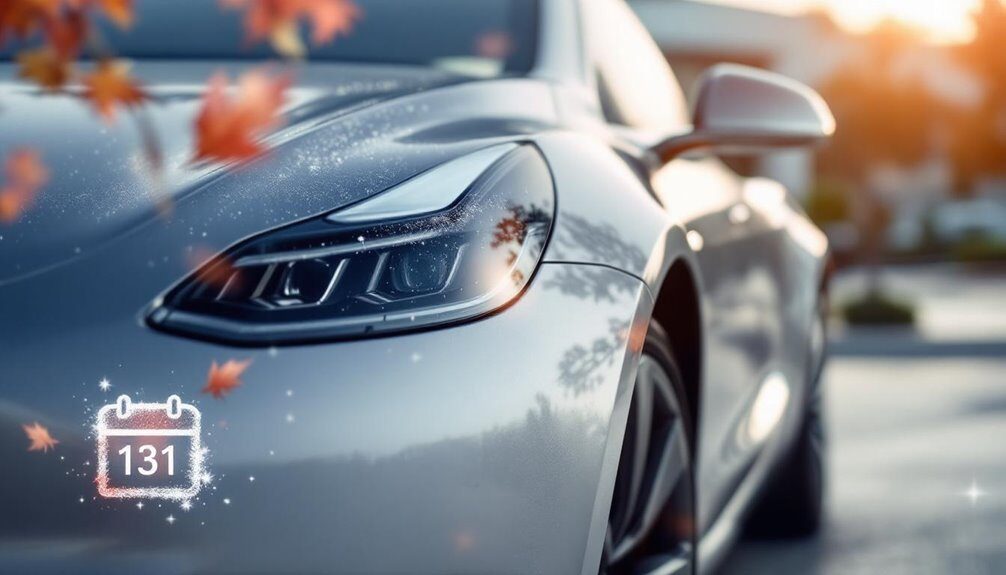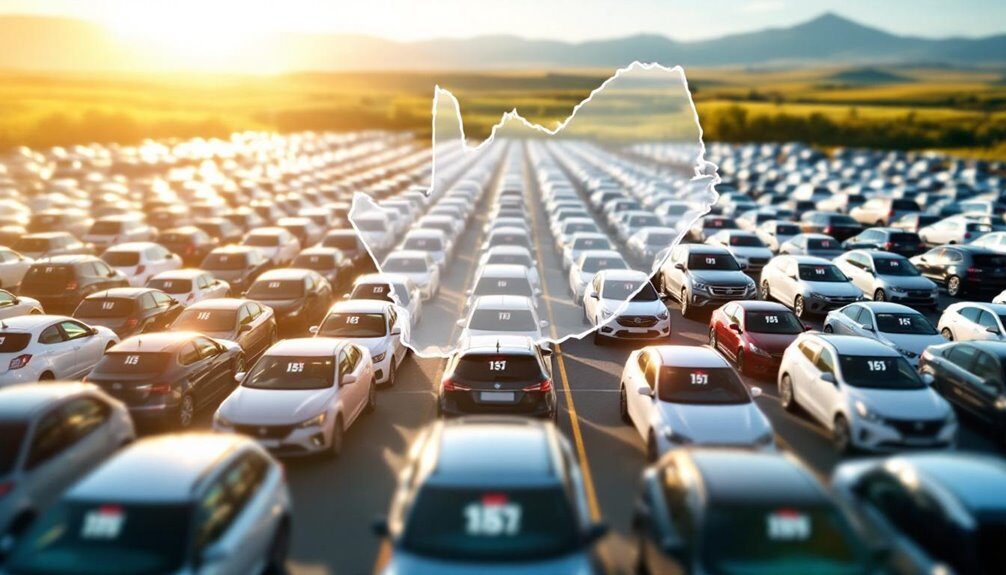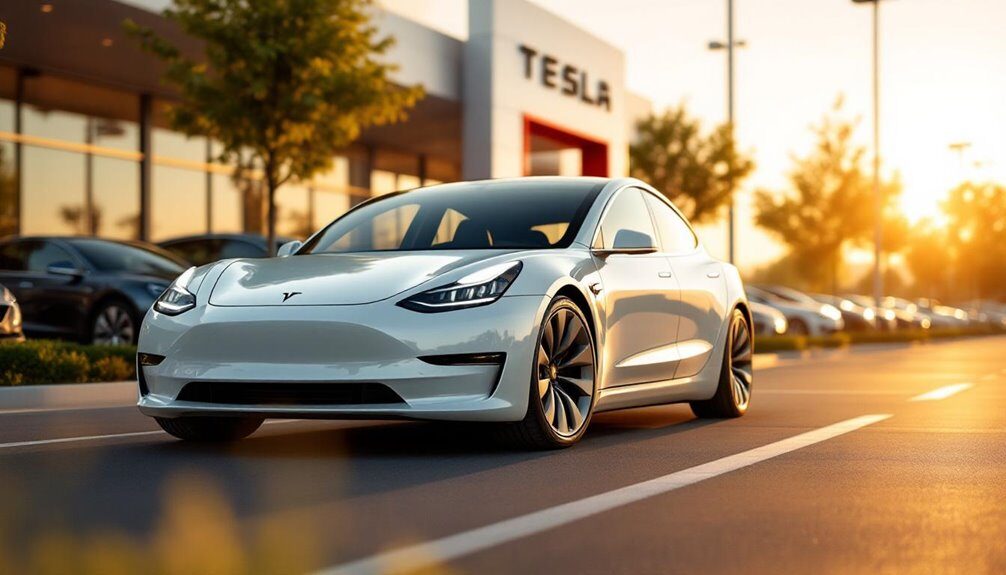You want a small car that won’t depreciate in value? Toyota Corolla, VW Polo, and Suzuki Swift are your gold standards—they hold their worth like nothing else. Fuel efficiency, solid reliability ratings, and brand reputation keep resale prices firm. Chinese brands like BYD are shaking things up with aggressive pricing, but the tried-and-tested Japanese and German options still dominate the secondhand market. Parts availability matters too. The specifics? Stick around.
Market Dynamics Shaping Small Car Demand in 2026
As South Africa’s automotive market kicks into gear heading into 2026, consumer confidence is firing on all cylinders.
You’re witnessing something real here—new car sales jumped 22.5% year-on-year in Q2 2025, hitting levels not seen since 2014.
October pushed even harder with 55,956 units sold, a 16% spike.
Here’s what’s driving you toward small cars: affordability meets reliability.
Lower borrowing costs and record-low inflation are sweetening the deal.
Chinese automakers now own nearly 15% market share by offering genuine value.
Compact SUVs and small saloons dominate because they’re versatile without breaking the bank.
The used-to-new vehicle registration ratio climbed to 3.2 in Q2 2025, reflecting strong resale value demand as buyers increasingly opt for certified pre-owned alternatives alongside new purchases.
At Autobahn Motors, we understand that quality used cars offer customers the best combination of value and reliability during this dynamic period.
Our comprehensive car care and services ensure that pre-owned vehicles maintain their performance and longevity for years to come.
Sure, two-pot pension withdrawals temporarily pumped liquidity into the market, but that’s petering out.
However, strategic investments in domestic manufacturing are positioning South Africa to maintain export-market competitiveness as OEM capital expenditure modernises facilities for next-generation models.
The real story? You’re hunting efficiency without sacrifice.
That’s not changing anytime soon.
Top Performers: Small Cars With Exceptional Resale Value
When you’re hunting for a small car that’ll actually hold its value, you’re looking at a pretty tight lineup.
The Toyota Corolla? It’s basically the gold standard—proven long-term investment with reliable resale prospects that don’t quit.
Volkswagen Polo sits right there too, maintaining strong resale value despite higher initial costs. Yeah, it costs more upfront, but you’ll recoup that difference when you sell.
VW Polo Vivo? Reputation for consistent value retention across generations.
Suzuki Swift demonstrates stable market demand, keeping secondary market pricing honest. With a purchase price of just R219,900, the Swift offers an accessible entry point for budget-conscious buyers. Dealers like Autobahn Auto stock quality used models with nationwide delivery available. When maintaining your Swift, genuine OEM parts ensure optimal performance and reliability over time.
Toyota Corolla Quest ranks as the top pick for 2025 secondhand purchases, leaning hard on reliability.
These aren’t flashy choices. They’re smart ones.
What Drives Resale Value in the Small Car Segment
So you’ve picked out a small car that looks promising—now comes the real question: will it actually be worth anything when you’re ready to sell?
Here’s what actually matters: brand reputation. Toyota, Volkswagen, and Suzuki aren’t popular by accident—they’re reliable, widely supported, and buyers trust them. Fuel efficiency counts too. A 1.2L or 1.4L engine that sips fuel at 5–6L/100km? That’s gold. Insurance and maintenance costs stay low, which keeps demand high.
Service history makes or breaks resale value. Regular franchised dealership servicing, complete records, accident-free status—buyers want proof you didn’t neglect your car. When you need expert service, a dedicated automotive team can help maintain that critical service history. Keeping comprehensive service records demonstrates your commitment to proper vehicle maintenance and significantly improves buyer confidence.
Mileage under 150,000 km holds value better. Push past 200,000 km and you’re looking at steep depreciation.
Colour matters. White, silver, grey dominate. Practical features like air conditioning seal the deal.
How Chinese Brands Are Reshaping Resale Trends
You’d think the South African used car market was locked in stone—Toyota, Volkswagen, Suzuki, repeat. Not anymore. Chinese brands just crashed the party. Hard.
Here’s what’s happening:
- BYD’s used sales exploded 637% whilst the overall Chinese used market surged 89% in H1 2025
- Popular models like Chery Tiggo 4 Pro and Haval Jolion dominate small car sales, creating demand that keeps resale values strong
- Affordable hybrids and plug-in hybrids undercut traditional competitors on price whilst offering cleaner technology
- Localisation efforts—assembly plants, parts networks, service centres—mean better support and fewer reliability concerns
For reliable maintenance and expert repairs of any vehicle, including Chinese brands, professional auto repair services ensure your car stays in top condition. Regular upkeep through routine maintenance services prevents major issues and extends vehicle lifespan. You’re seeing garage forecourts shift. Chinese small cars now compete directly with Japanese stalwarts. Resale values rise when demand’s this intense. Buyers recognise the value. That’s reshaping everything.
Economic Factors Affecting Small Car Resale Pricing
Because South Africa’s economy isn’t exactly firing on all cylinders—we’re talking 1% GDP growth in 2024 with projections averaging 1.4% through 2026—resale prices for small cars aren’t operating in a vacuum.
Inflation squeezes your disposable income. Interest rates fluctuate, making finance less accessible. Exchange rate volatility? That jacks up import costs and ripples through the market.
Here’s the silver lining: rising fuel prices push demand for efficient small cars, propping up their resale values.
Meanwhile, supply chain interruptions have eased since 2022, stabilising availability.
Consumer preferences are shifting too. You’re seeing stronger demand for reliable, low-maintenance vehicles. Keeping your vehicle in optimal condition through services such as tyre inspections and balancing further enhances its market appeal.
Brands like Toyota and Volkswagen depreciate slower because people want them. Regular brake maintenance and professional automotive care also contribute to vehicle longevity and resale appeal.
Geography matters. Urban centres with high fuel costs preserve resale prices better than rural areas with lower purchasing power.
Consumer Priorities and the Resale Value Connection
When you’re shopping for a small car, you’re not just thinking about today’s commute—you’re already wondering what you’ll get back when you sell it down the line.
Here’s the thing: buyers aren’t interested in flashy features that’ll be outdated in three years; they want practical cars that won’t nickel-and-dime them with repairs, fuel costs that don’t make you weep, and safety features that actually work.
Your resale value hinges on the same things that made you buy the car in the first place—reliability, efficiency, and no-nonsense functionality that holds up.
Affordability Meets Long-Term Value
South Africa’s used car market in 2026 isn’t complicated—it’s driven by two things that matter most to everyday buyers: getting a decent ride without breaking the bank, and not watching that investment evaporate the moment you drive it off the lot.
Here’s what’s actually happening:
- Entry-level brands like Hyundai, Kia, and Suzuki dominate because they’re affordable upfront and don’t haemorrhage value like luxury models do.
- Fuel-efficient compacts cut your running costs, making ownership genuinely sustainable on a tight budget.
- Strong brand reputation directly translates to faster resale and better prices when you’re ready to move on.
- Slower depreciation rates on small cars mean your money stays in your pocket longer.
You’re not just buying cheap. You’re buying smart.
Reliability Drives Buyer Confidence
Will this thing actually start tomorrow? That’s the question keeping you up at night when you’re hunting for a used car.
Here’s the deal: reliability isn’t some abstract concept—it’s your peace of mind. Toyota’s sitting at 9.2/10, Suzuki at 8.9/10, Volkswagen at 8.7/10. These aren’t just numbers. They translate to fewer breakdowns, lower maintenance costs, and honestly, fewer trips to the workshop.
You’re looking at $2,880 annually for Suzuki versus $4,720 for Volkswagen. That gap matters when you’re counting coins.
South Africa’s brutal on vehicles—heat, rough roads, massive distances between service centres. You need something that won’t leave you stranded.
Buyers get it. They’re hunting reliability like it’s currency because, frankly, it is.
Resale Potential Influences Purchase Decisions
You’ve picked a reliable car, but here’s what actually moves the needle on your decision: resale value. It’s the silent player in your purchase that most people don’t talk about until they’re selling.
Here’s why it matters:
- Strong residuals mean you recover cash faster – Toyota Corollas and Fortuners aren’t popular by accident; they hold value like champions.
- Lower depreciation softens the financial hit – Volkswagen Polo Vivos and Suzuki Swifts keep their worth, reducing what you lose annually.
- Quick sales happen with trusted brands – Ford Rangers move fast because buyers trust them, meaning less time sitting on your hands.
- Parts availability keeps buyers confident – Widespread components mean cheaper maintenance, making your car more attractive when you sell.
Established brands win here. They just do.



